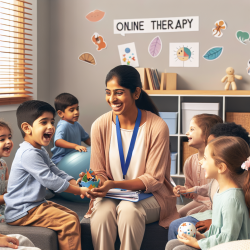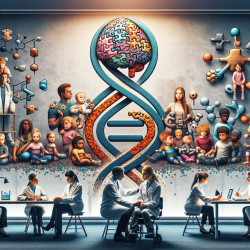Language development is a critical aspect of early childhood, and delays in this area can lead to various cognitive, social-emotional, and academic challenges. As a practitioner, leveraging innovative approaches like music therapy can significantly enhance outcomes for children with delayed speech development. A recent pilot study titled Effects of music therapy in the treatment of children with delayed speech development offers compelling evidence on the benefits of music therapy.
The study involved 18 children aged 3.5 to 6 years who received individual music therapy sessions. The researchers used an ABAB reversal design to compare periods of music therapy with no treatment. Key assessments included a speech development test, a non-verbal intelligence test, and music therapy assessment scales.
Here are some key findings from the study:
- Phonological Memory and Sentence Understanding: Children showed significant improvements in phonological memory and their understanding of sentences after music therapy sessions. This suggests that music therapy can effectively enhance fundamental aspects of speech development.
- Cognitive Development: The study observed significant increases in cognitive structures and action patterns, indicating that music therapy also supports overall cognitive development.
- Child-Therapist Relationship: Clinically significant improvements were noted in the client-therapist relationship and musical communicative ability, as measured by the Nordoff-Robbins scales.
These findings suggest that music therapy not only supports speech development but also enhances cognitive abilities and relational skills. As a practitioner, you can integrate music therapy into your treatment plans to provide a holistic approach to speech development. Consider the following steps:
- Incorporate Music Therapy Sessions: Integrate music therapy sessions into your regular treatment plans, focusing on activities that involve singing, playing instruments, and improvisation.
- Monitor Progress: Use validated speech and cognitive assessment tools to monitor the progress of children undergoing music therapy.
- Collaborate with Music Therapists: Work closely with certified music therapists to design and implement effective therapy sessions tailored to each child's needs.
Encouraging further research in this area is also essential. The study underscores the need for larger, randomized controlled trials to explore the mechanisms of music therapy and its long-term effects on speech development.
To read the original research paper, please follow this link: Effects of music therapy in the treatment of children with delayed speech development - results of a pilot study.










